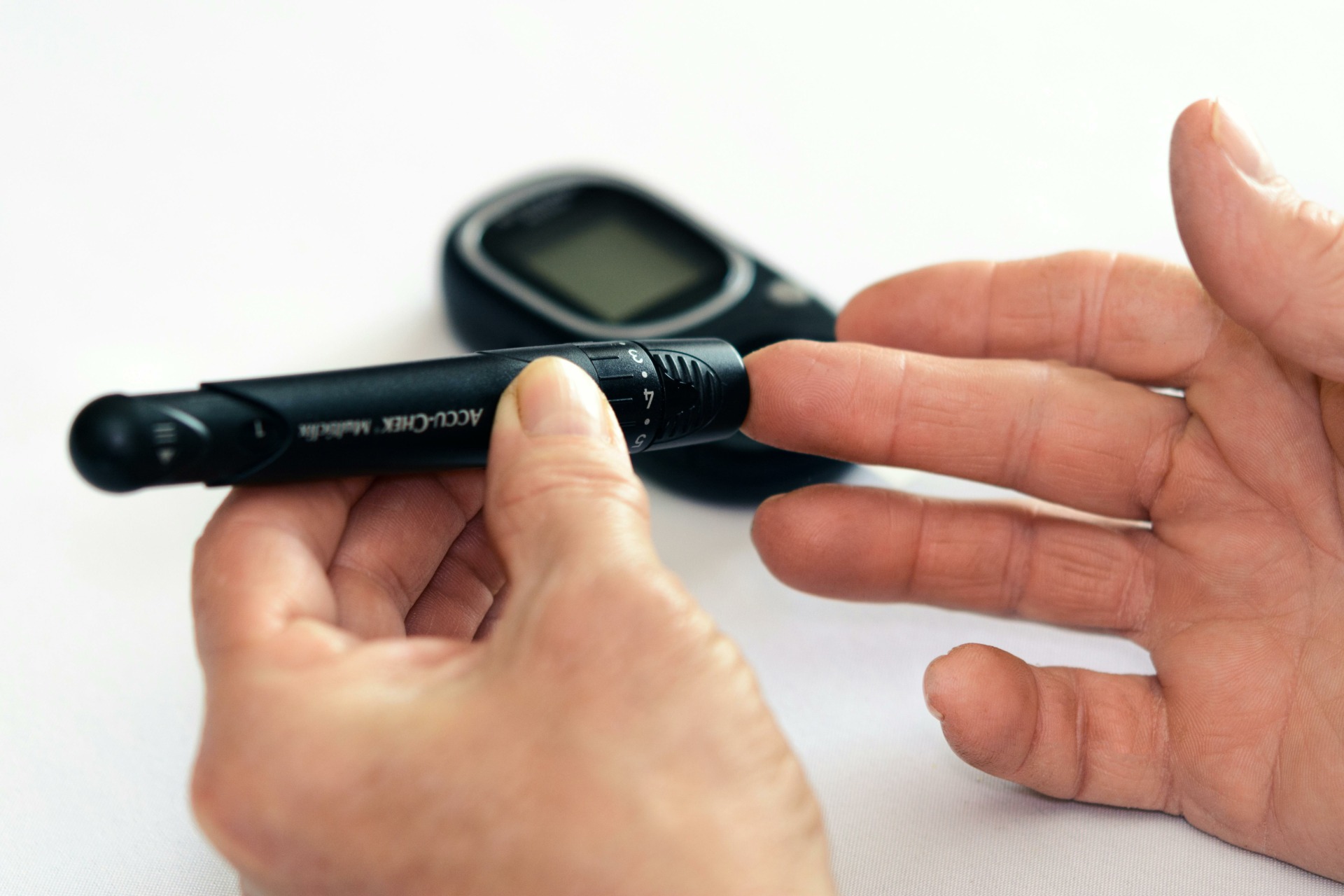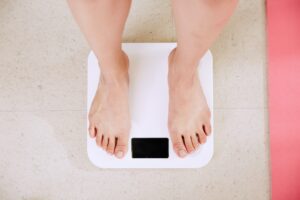Diabetes is a prevalent condition—approximately 9.4% of the U.S. population has been diagnosed with this disease. Controlling glucose level is key to managing diabetes. However, even with the help of medications and a healthy diet, some patients still have a hard time keeping glucose levels in check. Anecdotal reports from diabetes patients—and even one clinical study to date—suggest that cannabis can help patients in this matter.
FOLLOW US ON FACEBOOK & INSTAGRAM
What Is Diabetes?
When you eat or drink something, your body breaks down parts of your food into a simple sugar called glucose. This glucose moves via your blood to various places in the body, where it’s used as an energy source to help you carry out everyday activities. Diabetes arises when your body is unable to properly regulate the amount of glucose that’s in your blood, leading to what’s called high blood sugar.
Insulin is a hormone that’s responsible for controlling glucose levels in your blood—it’s always being released in small amounts by the pancreas. When your blood sugar is high, insulin signals for glucose to be pushed into cells; when your blood sugar level drops, your body signals for you to eat to help bring them back up.
In folks with type 1 diabetes, the cells—called beta-cells—that make insulin in the body are attacked by the immune system. Without insulin, the body can’t make proper use of glucose, and thus can’t work properly; this leads to common type 1 diabetes symptoms like fatigue, excessive thirst and nausea.
Type 1 diabetics must use insulin injections to manage their blood sugar. We’re not sure what causes this autoimmune dysfunction, but some theorize that type 1 diabetes may be due to:
- Genetics
- Environmental factors
- Chemical triggers
In type 2 diabetes, which is much more common, the body makes insulin, but it either doesn’t respond to the hormone, or it doesn’t make enough of it. There’s no definitive cause for this type of diabetes, but obesity and lack of exercise are strongly considered to play a role.
New research by scientists at Lund University in Sweden suggests that type 2 diabetes is actually four different “clusters” of the same disease. However, since this study is still new, widespread acceptance of this classification is still pending.
Type 2 diabetes can be managed with proper diet and exercise, though some folks may also have to take medications to help them control their blood sugar levels.
Diabetes & the Role the Endocannabinoid System Plays
At this point, most of us familiar with cannabis know a little about the endocannabinoid system (ECS)—the network of receptors located throughout the body that regulates essential life processes, like eating and sleeping. The most well-studied receptors in this system are CB1, CB2 and TRPV1.
Your body makes substances called endocannabinoids that attach to these receptors. Cannabis, likewise, makes substances called phytocannabinoids that can also attach to or influence ECS receptors. Tetrahydrocannabinol (THC) and cannabidiol (CBD) are the cannabis plant’s most well-known phytocannabinoids, but interest is also rising in other phytocannabinoids such as tetrahydrocannabivarin (THCV).
RELATED: PSYCHOACTIVE THCV: THE CANNABINOID THAT KILLS YOUR APPETITE
Given that the ECS is so highly involved in the immune response and appetite, it should come as no surprise that it likely plays a role in diabetes. Research indicates that obese women tend to have an imbalance in their ECS. (Remember that obesity greatly increases your chances of developing type 2 diabetes.) These women tend to have:
- More endocannabinoids circulating in their blood
- Fewer CB1 receptors in their peripheral nervous system
- Less of an enzyme that’s responsible for breaking down endocannabinoids in the body
We also know that activation of CB1 receptors increases appetite and promotes weight gain. This is one of the reasons why cannabis is known for making you hungry: When you consume cannabis, THC attaches to these receptors, leading to the “munchies.” Because of this, it’s thought that substances that block attachment sites on CB1 (like THCV) could be useful in managing as well as preventing diabetes.
Moreover, studies also indicate that the ECS could influence beta-cells—the cells in the pancreas that produce the all-important insulin. That said, the extent of the ECS’s role in this context is still up for debate.
So, given what we know, could manipulating this system by adding phytocannabinoids from cannabis have a positive effect on both type 1 and type 2 diabetes?
Cannabis May Have Beneficial Effects in Type 1 Diabetes Patients
Few studies have addressed the use of cannabis for type 1 diabetes, but those that have been done are encouraging. Researchers have studied the effects of both THC and CBD in mice with diabetes that arises from an autoimmune dysfunction.
Scientists found that THC could lessen the severity of the body’s immune response; it was able to reduce both elevated glucose levels and insulin loss in mice.
In studies involving CBD, researchers found that the phytocannabinoid could both stop the onset and lower the incidence of autoimmune-induced diabetes. Another study also found that CBD could reduce inflammation in the pancreas—the organ where insulin is made.
Cannabis May Help Folks With Type 2 Diabetes Better Metabolize Carbohydrates
In contrast with type 1 diabetes, much more research has been done on type 2 diabetes and cannabis. A few studies have shown that cannabis consumers are less likely to be obese, have a lower body-mass index and overall are less likely to get diabetes—even when controlling for factors like exercise, age and sociodemographics.
Though we still don’t know the mechanism behind this action, cannabis seems to allow for better metabolization of carbohydrates. In one study published in the American Journal of Medicine, current marijuana use was associated with 16% lower insulin levels. Insulin levels are a measure of insulin resistance; high levels are a sign that the body isn’t using insulin properly and often indicate prediabetes.
THCV, Not CBD, May Help Reduce Glucose Levels in Type 2 Diabetics
These studies have indicated that there’s a promising link between cannabis use and a decreased incidence of diabetes, so much so that there’s actually clinical research on the matter. A recent randomized, double-blind, placebo-controlled trial published in Emerging Technologies and Therapeutics studied the use of CBD and THCV on patients with type 2 diabetes.
Researchers found that THCV alone reduced glucose levels, while also improving the function of beta-cells, which make the hormone insulin.
Though there’s been much interest surrounding THCV as an appetite suppressant and weight-loss tool, this study didn’t find that THCV helped patients lose weight. This doesn’t mean that the phytocannabinoid is devoid of these effects, but that perhaps the amount given wasn’t sufficient enough, says Dr. Perry Solomon, HelloMD’s chief medical officer.
Conversely, the researchers found that CBD had no effect on glucose levels—in spite of previous research that suggested it could. To this, Dr. Solomon again noted that dosing could be a factor.
“In this study, the amount of CBD used was 200mg a day. There’s some suggestion in the literature that higher doses are needed to have an effect on blood glucose levels,” he says.
Overall, both CBD and THCV were well-tolerated by the test subjects, with no side effects noted.
“There will be further research in using THCV with diabetics,” says Dr. Solomon. “Whether it will be shown that THCV can be used as a dietary aid remains to be seen in other studies.”
Studies on cannabis and its effect on blood sugar are promising, and cannabis entrepreneurs are taking note. The previously mentioned study was conducted by GW Pharmaceuticals, a company that’s hoping to use cannabis to develop a drug that’ll reduce the need for insulin injections. With increased urbanization across the globe, the incidence of diabetes will likely rise in the years to come, making this condition a public health concern—and making diabetes medications all the more necessary.
Photo credit: Ana-Maria Nichita
If you’re new to cannabis and want to learn more, take a look at our Cannabis 101 post. HelloMD can help you get your medical marijuana recommendation; it’s easy, private and 100% online.






